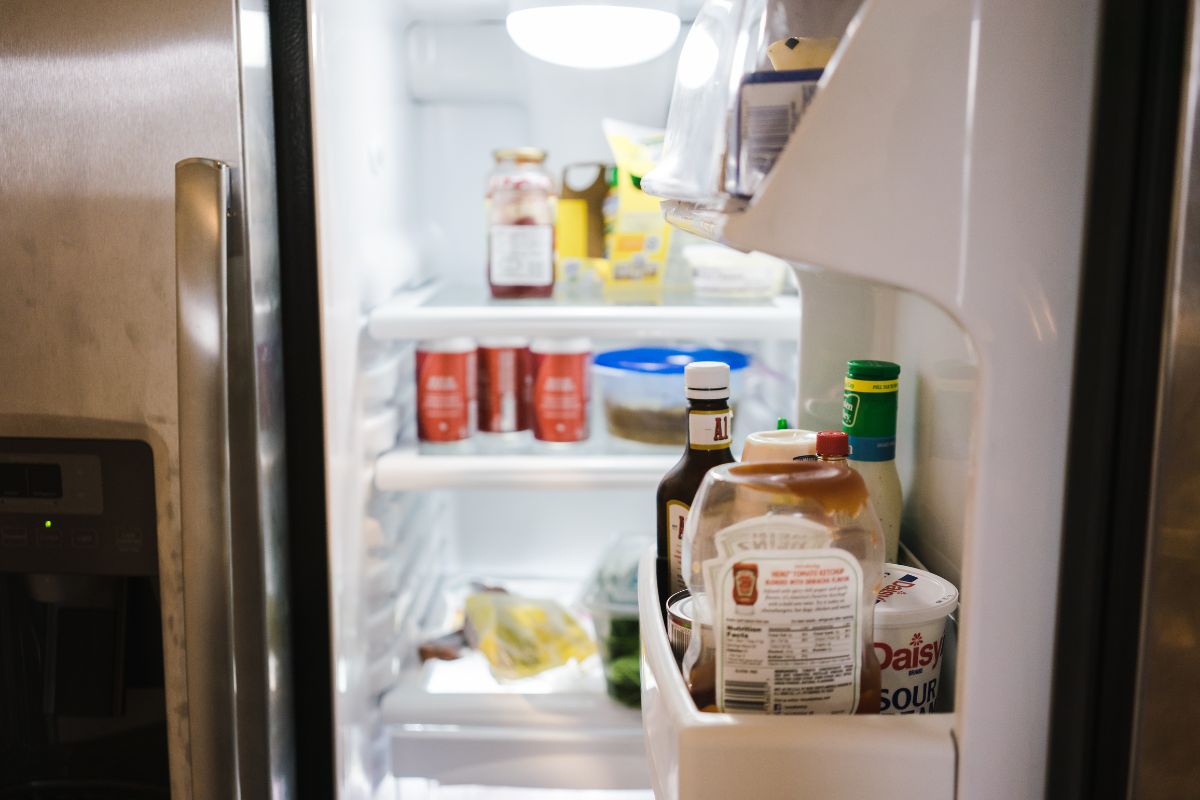Show table of content Hide table of content
Storing open canned food in your refrigerator might seem like a convenient way to preserve leftovers, but this common practice poses serious health risks that many people overlook. The interaction between food, air, and metal containers creates a potentially dangerous situation right inside your fridge. Understanding these risks and learning proper food storage techniques can help protect your family’s health and maintain food quality.
The hidden dangers of storing open cans in your refrigerator
When you place an opened can directly into your refrigerator, you initiate a chemical process that could compromise your health. Once exposed to air, the contents of metal cans begin to oxidize, triggering metal leaching. This process accelerates with acidic foods like tomatoes, beans, and canned fruits, as their natural acids break down the protective lining inside the can.
The deterioration of this protective barrier allows heavy metals from the steel, primarily iron and zinc, to migrate into your food. While these metals may not cause immediate harm in small amounts, they can significantly alter the taste of your food and make eating leftovers an unpleasant experience.
News This TikToker buys a used van and realizes it has a hidden surveillance device.
Food safety experts warn that extended exposure to these metals might lead to health complications, especially for vulnerable populations. Children and pregnant women face higher risks from metal contamination, similar to how protecting yourself from toxic elements is essential for overall wellbeing.
The cold environment of your refrigerator doesn’t prevent this chemical reaction – it merely slows it down. Even at low temperatures, the combination of moisture, air, and metal creates ideal conditions for continued deterioration of both the can and its contents.
Bisphenol A exposure increases with improper storage
Another significant concern with storing open cans in the refrigerator involves Bisphenol A (BPA), a chemical compound used in the manufacturing of can linings. This substance helps prevent corrosion and preserves food quality by creating a barrier between metal and food. However, BPA is a known endocrine disruptor that can interfere with your body’s hormonal system.
Scientific research has demonstrated that BPA can mimic estrogen, a crucial hormone in human physiology. This mimicking effect can disrupt hormonal balance, potentially causing fertility issues, metabolic disorders, and even increasing the risk of certain cancers, particularly breast and prostate cancers.
When a can remains open in your refrigerator, the exposure to air and moisture accelerates the breakdown of BPA, potentially releasing more of this chemical into your food. Each hour your leftover food sits in an open can increases the risk of BPA contamination.
The impact of endocrine disruptors like BPA can be subtle but far-reaching, affecting multiple body systems over time. Much like the heartwarming story of a man who reunited with his family after 73 years, the effects of these chemicals can have long-lasting consequences that aren’t immediately apparent.
Safe alternatives for storing leftover canned foods
Fortunately, avoiding these risks requires minimal effort and provides maximum protection for your health. The simplest solution is transferring leftover canned food into appropriate containers designed for food storage. Glass or food-grade plastic containers offer safer alternatives to leaving food in open metal cans.
These alternative containers not only eliminate exposure to metal leaching and BPA but also better preserve the freshness and flavor of your food. Their airtight seals prevent air, moisture, and other contaminants from entering, slowing food deterioration and maintaining texture and taste.
News Bat wings after 50? Here’s the most effective exercise, according to a coach.
After transferring your leftovers, consume them within four days to ensure optimal safety and quality. Even in proper containers, bacteria can multiply rapidly in refrigerated conditions if food is stored too long. Labeling containers with the date of transfer can help track freshness and prevent foodborne illness.
Food safety experts emphasize that this simple habit change can significantly reduce health risks while extending the usability of your leftover canned foods. The dedication to maintaining proper food safety parallels the commitment shown by service animals, like the remarkable Gordon Setter who saved over 160 dogs through blood donations – both represent small actions that yield significant benefits.
Best practices for handling canned foods safely
Beyond proper storage of opened cans, implementing comprehensive food safety practices ensures maximum protection from potential hazards. Check expiration dates before purchasing or consuming canned goods, as expired products may harbor harmful bacteria or experience compromised structural integrity.
Before opening any can, wipe the top with a clean cloth to remove dust or contaminants that could fall into the food. Use clean can openers and rinse the cut edge with water before pouring out contents to minimize metal particles in your food.
For partially used canned ingredients, transfer them immediately into appropriate storage containers rather than letting them sit out during meal preparation. This prevents unnecessary exposure to air and bacteria that accelerate spoilage.
Temperature control plays a crucial role in food safety. Refrigerate leftover canned foods promptly, ideally within two hours of opening. When transferring hot canned foods, allow them to cool slightly before refrigeration to prevent condensation that could promote bacterial growth.
Remember that different canned foods have varying shelf lives even after proper transfer to storage containers. Highly acidic foods like tomato products typically last fewer days than less acidic options like beans or corn. When in doubt about the safety of stored food, follow the golden rule of food safety: “When in doubt, throw it out.”


